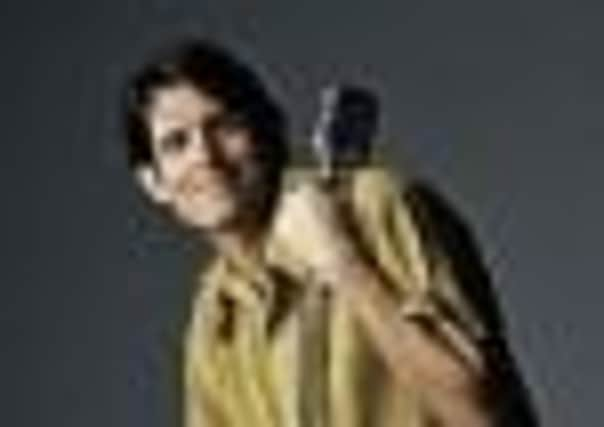Patrick Combs: Heard the one about the cashed junk mail cheque?


IT came in a junk mail letter. It was a fake cheque for $95,093.35 made payable to my name. It was meant to entice me into buying some get-rich-quick scheme. It was a slick come-on that said, “Patrick Combs, take a close look at the cheque above. It’s just a sample of the money you could be receiving soon.” Junk mail slime.
The fake cheque above looked real enough but clearly carried the words, “NOT NEGOTIABLE” typed in the top right-hand corner.
Advertisement
Hide AdAdvertisement
Hide AdThe letter it came with was pages of get-rich-quick promises and hype all punctuated by exclamation points.
Getting phony, come-on cheques wasn’t new to me. They junked up my mail box often. But on this particular day I was in a humorous mood and I thought it would be fun and funny to deposit this fake cheque as a joke.
Certainly, it would be an unmistakably ridiculous act that could only result in a teller’s laughter. It would be like offering seashells instead of your credit card to pay your restaurant bill, totally safe and a touch funny. Or so I assumed. So I endorsed the faux $95,093.35 junk mail cheque with only a smiley face, deposited it at the ATM and waited for a light-hearted call from my bank.
But my bank didn’t call laughing as I expected. Nor did they call to tell me I was an idiot. They did something else entirely unexpected. They cashed it.
Five days later, I returned to an ATM to get a little cash and out spat two $20 notes and a mini-bank statement which I usually dreaded. But this time I was wildly surprised to see my bank balance was $101,217.34..
It was at the beginning of an extraordinary happening but also a fight with my bank. A fight with the tenth largest bank in the United States at the time.
The bank could have reclaimed the money from me easily if they understood customer service. One kind phone call saying: “Oh my, Mr Combs, we have made a mistake by cashing the fake cheque you deposited and endorsed with only a smiley face. Could we have the money back?” The answer would have been yes, of course.
But instead, I heard nothing from my bank and began wondering if the cheque was in fact not ever going to bounce. After three weeks of waiting I went into the bank and asked the branch manager himself no less when I’d be safe to start spending the money?
Advertisement
Hide AdAdvertisement
Hide AdHe informed me that I was legally safe to start spending the money because it had been so long. Then I confirmed that it was legally mine with a phone call to a legal banking expert. Only then did I withdraw all the cash.
A week later, my bank apparently decided they didn’t like that particular law and they had their senior security officer phone me yelling threats of policemen at my doorstep. Whatever happened to customer relations?
Yelling, threatening me and apparently lying after their very own branch manager told me I was safe to spend it was not right. Add to that that in the same threatening phone call I simply requested an official letter from the bank making a formal request for the money’s return and was outraged to hear: “I don’t have to give you any letter. This phone call is all I have to give you and it is all I ever will give you.”
And with that the fight was on.
Admittedly, by asking for the letter I knew I was putting the bank in a position where they’d have to do one of two things to give me sufficient reason to return the money. Either show their hand, and tell me the laws that indeed required me to return the money, or stop placing all the blame on me and simply admit they made mistakes.
And therein lay the bank’s predicament. Several key laws said the money was legally now mine and they had made mistakes. But whereas most other businesses understand the value of an honest admittance of error, an apology and a commitment to make it right, banks only see exposure. .
So I suppose asking my bank to admit their financial mistake was like asking a thief to trust me with his wallet. My bank simply wanted to refuse me the honest letter. And so we were in a stand-off. No proper letter. No return of the money.
I stood up to the bank on principle. As I saw it, I was just asking the bank to be honest and to be willing to take responsibility for their mistakes. Just as they’ve always held us accountable for bounced cheques.
And then I decided to turn my experiences into a comedy show – because we all need to laugh.
Advertisement
Hide AdAdvertisement
Hide AdI’m afraid I can’t reveal if I kept the money in the end, or what I did with it without giving away the ending of my show, but please come and see me at the Gilded Balloon if you want to hear to story in full.
• Patrick Combs’ show, Man 1, Bank O, is at the Gilded Balloon